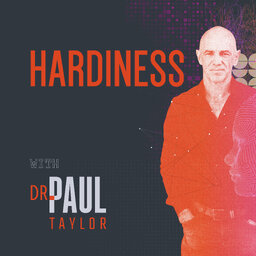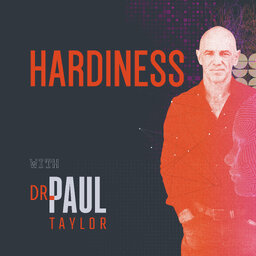Wisdom Wednesdays: Science uncovers why chocolate, chips, wine and beer are more tempting after a hard day's work - and what to do about it.
No description provided
In 1 playlist(s)
Hardiness with Dr Paul Taylor
Host Dr Paul Taylor, a Psychophysiologist, Neuroscientist, Exercise Scientist, and Nutritionist inte…Social links
Follow podcast
Recent clips

How to dramatically improve the metabolic health and performance of your skeletal muscle: Wisdom Wednesdays
11:41

Stop Letting Comparison Steal Your Confidence With Carly Taylor
05:06

Discovering Your Ikigai with the Japanese Rock-star Neuroscientist, Ken Mogi
55:28
 Hardiness with Dr Paul Taylor
Hardiness with Dr Paul Taylor